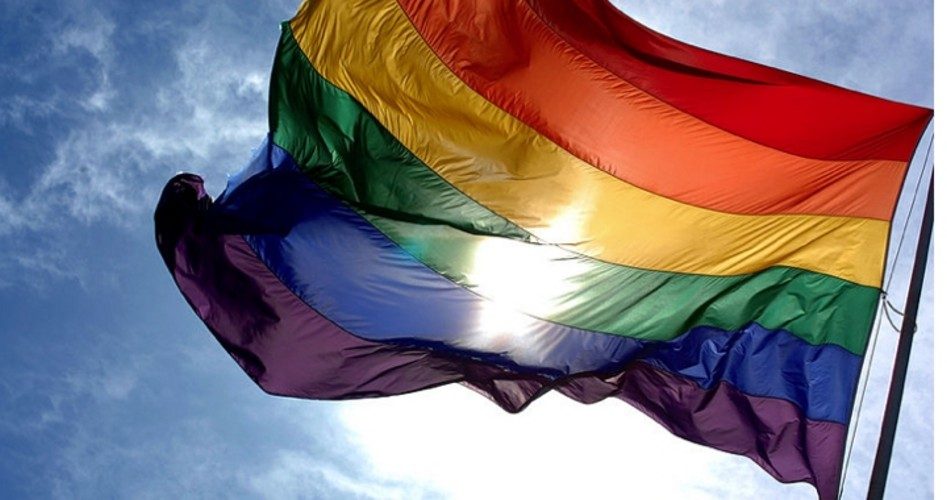
Both men wanted a race war. Both men committed murder in an attempt to spark it. But both men’s stories are treated very differently by the media.
The world is shocked by the killing of 24-year-old reporter Alison Parker and 27-year-old cameraman Adam Ward, of small Virginia station WDBJ (a CBS affiliate), by disgruntled and disturbed ex-co-worker Vester Lee Flanagan II, who not incidentally is homosexual. By interrupting a live TV interview and committing his act on air, Flanagan, 41, got the attention he apparently craved and gave the world something unforgettable: real-life murder appearing movie-style, in deadly living color. And while such a thing makes the story impossible for even politically correct media to completely ignore — black-on-white crimes normally receive no national coverage — it’s quite possible to cover it politically correctly.
It’s no surprise that some have compared Flanagan to Dylann Roof, the 21-year-old murderer of nine people in the Charleston, South Carolina, church shooting on June 17. Not only did both men commit violence intended to spark a race war, but Flanagan — a failed reporter who wrote that he’d “already been a human powder keg for a while” — cited the church massacre as the event that sent him “over the top.” He said that he “put down a deposit for a gun on 6/19/15,” two days after Charleston, and that if Roof wanted a “race war,” to “BRING IT.” Both men also made their racial views public, Roof through an online website and Flanagan via a 23-page manifesto sent to ABC News.
But despite these striking similarities, the type of guilt by association drawn by the media is very different in each case. As InfoWars reports:
Police reportedly confiscated a gay pride flag from Flanagan’s apartment on Wednesday, but in an example of hypocrisy, this hasn’t sparked outrage from liberals who wanted to ban the Confederate flag due to its association with Charleston, S.C. church shooter Dylann Roof.
“Libs got the Confederate flag taken down in South Carolina,” blogger Dave Blount pointed out. “They have imposed a de facto ban throughout the country through their control of major retailers like Walmart, Amazon, eBay, Sears, etc.”
“The show The Dukes of Hazard has been taken off the air because it features the flag on the roof of a car.”
Yet the rainbow flag is getting a pass, despite being associated with a movement that makes demonization a specialty. Behaving as if those upholding marriage’s correct definition (one man, one woman) cannot, ever, have sincere intellect-derived beliefs, the homosexual lobby routinely impugns them as “bigots” and “haters.” And the message is clear: If you oppose faux marriage, you cannot be a good person — and you deserve whatever you get. Just ask Alveda King, niece of Martin Luther King, Jr. As she put it earlier this year, “When I speak out against gay marriage, the supporters of that movement threaten to kill me.”
None of this bleeps much on the media radar screen, despite Flanagan making his status as a homosexual black man central to the issue of his actions. Instead, the media has focused on a common fallback issue: guns. As Powerline put it, “If we are going to take seriously the ideology of lunatics, it must be a two-way street. Dylann Roof’s racist ideology was taken very seriously…. In Flanagan’s case, the focus is on gun control rather than his equally racist ideology.”
Moving on, Flanagan was disciplined by WDBJ for, among many trespasses, violating station policy by wearing a Barack Obama button during an election report. This brought Powerline to another double standard:
So why do we not retroactively conclude that images of Barack Obama are hateful, like the Confederate flag, and must be banned? Glenn Reynolds asks, “Will Obama apologize for the behavior of one of his followers [or say, ‘If I had a psycho son, he’d look like Vester Lee’]?” Of course not. But imagine if a racist white killer who worked for a television station had been similarly disciplined for wearing, say, a Ted Cruz button. Do you not think that fact would be deemed highly relevant, and highly embarrassing to Senator Cruz?
But we don’t have to imagine, as conservative figures have been implicated in others’ crimes for far less. When Arizona representative Gabby Giffords was shot by an insane man in 2011, Sarah Palin was criticized for previously having used cross-hairs imagery on a map showing Democrats who should be targeted for defeat. And leftists, including PBS icon Bill Moyers, have often blamed “right-wing” talk radio for various acts of violence.
But what of Obama? He once said of Republicans, “If they bring a knife to the fight, we bring a gun.” He told supporters in 2008 to argue with their neighbors “and get in their face.” He stated in 2010 that he spoke to certain experts because he wanted to “know whose a** to kick.” That same year he was being interviewed by Spanish-language station Univision and said that he wanted Hispanics to help him “punish our enemies” — those “enemies” being fellow Americans who disagreed with him politically.
Of course, everyone uses figurative speech at times (life would be quite dry if we all spoke like Mr. Spock), and context can clarify a quotation’s meaning. And all sides use some incendiary rhetoric, all sides sometimes implicate others’ rhetoric in violence, and all sides will deny that their rhetoric had anything to do with a violent act seemingly committed in its name. What do these universally exhibited contradictions indicate? That the truth here is quite nuanced.
None of us exists in a social vacuum. We all are influenced by others, and influence others, no matter how slightly. As for words, who would deny that Adolf Hitler’s incendiary rhetoric inspired violence and destruction or that imams preaching hate in countless mosques and madrassahs worldwide have the same effect? On the other hand, it’s well known that Enlightenment philosophers — such as Thomas Paine with his pamphlet Common Sense — helped inspire a war: The American Revolution. But are all these individuals equally culpable in evil?
The reality is that rhetoric, whether good or bad, can inspire violence. And either variety can inspire justifiable or unjustifiable violence. So should we all stop talking (of course, even body language can cause fights)? What we should do is recognize that the real issue is not whether rhetoric is “controversial,” “divisive,” or even “inflammatory,” but whether it is true and warranted utterance at the time in question.
There is no doubt that Vester Lee Flanagan and Dylann Roof were influenced by others. The question is: Were they influenced by very different forces, as is the usual assumption?
Or were they mostly influenced by the same ones?
Photo of rainbow flag: Ludovic Bertron



